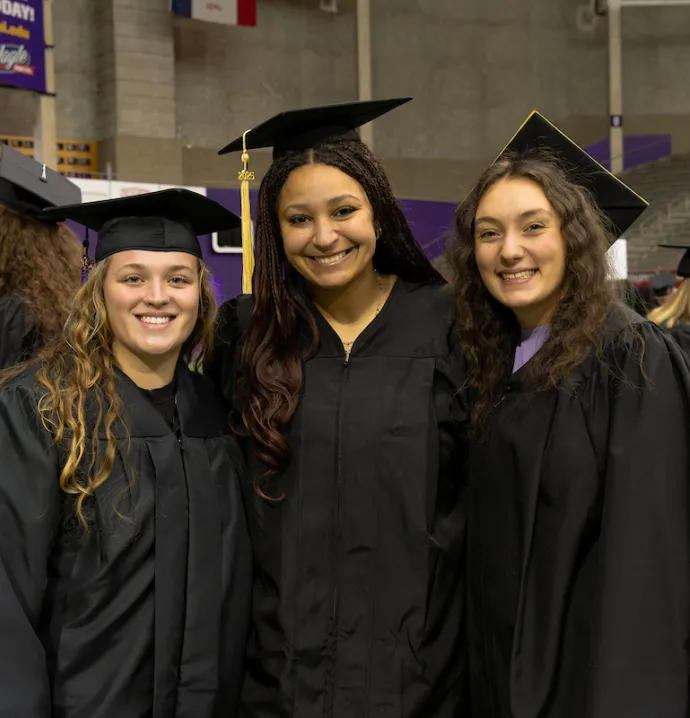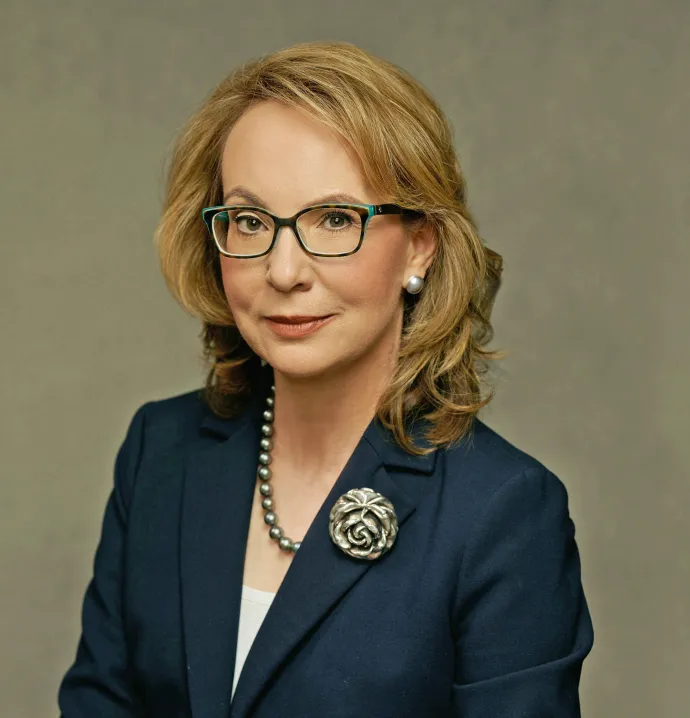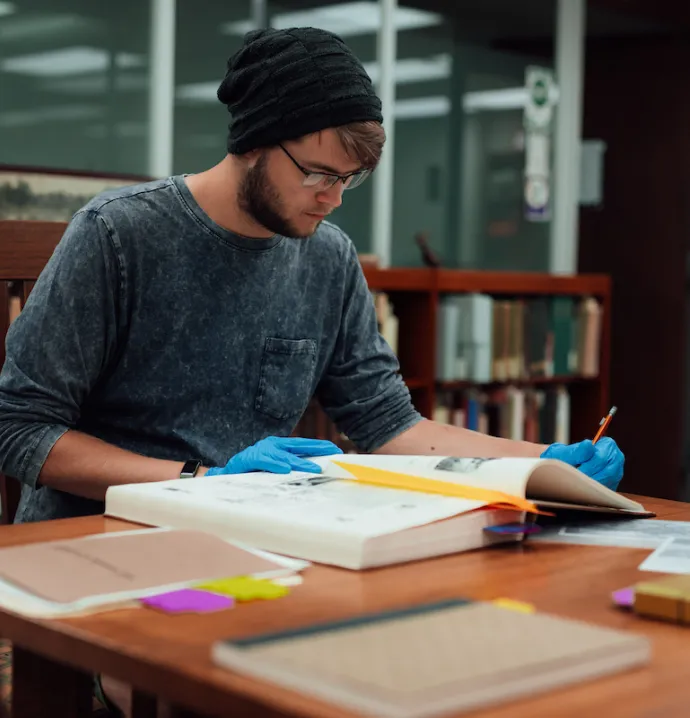A portrait of life in the pandemic
A portrait of life in the pandemic
At just 9 years old, Roshan Subba made the incredible journey from a refugee camp in Nepal to Des Moines. Though Subba has few memories of his time in the camp, one thing he remembers is watching other children practicing calligraphy. Subba dreamed of being able to create intricate art like that someday.
Now, he’s a senior graphic design major at UNI and his first solo art show, “Modernism,” is being showcased through June 23 by Waterloo community center COR 220 East.
The show is made up of a series of paintings and digital art inspired by the COVID-19 pandemic. The images blend aspects of traditional art with digital design elements, like emojis, and express the complicated emotions he experienced during the 2020 pandemic and Black Lives Matter movement. Subba often incorporates social issues into his artwork — something else inspired by his time in Nepal, where his family fled as pro-democracy refugees from Bhutan.
“Growing up in a refugee camp, I saw a lot of problems being faced… that sort of inspires me to make that kind of work,” he said. “In all of my artwork, I like to show what’s wrong and how it could be fixed.”
Economic inequality and climate change are other issues that Subba’s work explores, but the “Modernism” exhibit is focused more directly on his life, drawing inspiration from the experiences he and his friends were having during the pandemic.
The project started with a class assignment to create art based on daily life. Subba knew several people who fell ill with the COVID-19 virus — including his mother, who had to quarantine in the same house where Subba was attending online classes. Suddenly, he found himself being a caretaker.
“It was shocking to be honest,” he said. “Her being in a room all day and hearing her cry … it made me sad. I would take food to her room and just leave it out the door.”
The experience took an emotional toll on Subba, but also served as the inspiration for his class project, which later became his COVID-19 series of paintings. The paintings were different from his usual style of hyperrealistic portraits, but seemed to resonate with people. One piece called “Bad Day” that mixed a shadowy image of a handgun with emojis left one woman in tears, Subba said, and inspired him to bring more emotion to his work.
“That took me by surprise,” he said. “With this project I sort of wanted to show my feelings … now I want to do more artwork that’s similar.”
Subba credits UNI with helping to shape his perspective as an artist. He chose to attend on the recommendation of his art teacher at Lincoln High School in Des Moines, who praised UNI’s art program. Though he’s always loved drawing and painting, UNI gave him even more insight into art history and different styles of art. Through his classes, he developed a love of abstract art.
“When I first came to UNI … I didn't know a lot of abstract art … it was so new to me and it was really hard for me to develop that skill,” he said. “[My UNI professors] gave me ideas to explore off of and ever since then those are the kinds of skills I’ve been really trying to focus on. All my professors really helped me and encouraged me to really improve my skills.”
One of the professors who helped Subba evolve as an artist was art instructor Alex Dooley. She said she was particularly proud of how Subba was able to explore his emotions for his COVID-19 series.
“We devoted a great deal of time to discussing these topics in advanced drawing class and Roshan thought about the issues deeply,” said Dooley. “His current work in the ‘Modernism’ show is a wonderful example of a student emerging to find his own voice as an artist. His drawings are thoughtful and honest, expressing the fear, confusion and longing many of us are feeling.”
Subba first began refining his artistic vision in a Painting I class with Associate Professor of Art Kenneth Hall.
“Roshan came into the first painting class full of ideas about the environment, violence in the world and the strong urge to imagine peace,” said Hall. “He's a genuinely compassionate person, and this is reflected in his current work.”
Subba hopes to find work as a graphic designer in Iowa when he graduates. But he’s still just as passionate about developing his skills as an abstract artist, and exploring social issues through passion projects like the pandemic series. Despite how difficult 2020 was, Subba’s experience creating his series of pandemic-inspired art has helped him see opportunities in struggle — to inspire art and raise awareness.
“I was so used to going into the studio and then painting with my friends … shifting to online school was a different experience,” he said. “But the pandemic experience sort of also helped me as an artist to develop my skills. I started incorporating different subjects in my painting and tried to show more messages about social issues. I want to lean toward that more.”




